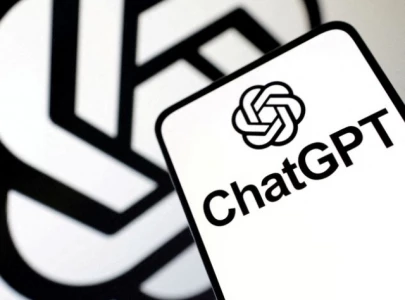

OpenAI’s ChatGPT experienced a brief but significant outage on Friday, impacting over 19,000 users.
The disruption lasted for about 30 minutes, but the company quickly resolved the issue and restored service by 5pm PT (0100 GMT).
Users began regaining access around 4:34pm PT, with a few continuing to face problems until the issue was fully resolved.
OpenAI confirmed the restoration in a statement, and CEO Sam Altman publicly acknowledged the outage, apologizing for the inconvenience.
The outage was tracked by Downdetector, a website monitoring real-time service disruptions, which reported that as of 7:13pm ET, 19,403 users were affected.
Altman took to X (formerly Twitter), where he expressed regret for the downtime, saying, “ChatGPT went down for 30 minutes today. Despite the brief disruption, OpenAI reassured users that the service had been fully restored."
Since its launch in November 2022, ChatGPT has grown rapidly, attracting a massive user base of 250 million active users per week.
OpenAI's swift response to the outage is a testament to the rapid scaling of its operations.
Over the past two years, OpenAI’s valuation has surged from $14 billion to an impressive $157 billion, reflecting its increasing dominance in the artificial intelligence space.
Revenues, too, have seen a remarkable rise, reaching $3.6 billion, far surpassing initial projections by CEO Altman.
The latest outage marks a minor hiccup in an otherwise growing and increasingly reliable platform.
While Altman expressed confidence in OpenAI's improvements in reliability, he acknowledged that there is still much work ahead, particularly as ChatGPT continues to scale and evolve.
Background and OpenAI's Growing Influence
Since its launch, ChatGPT has made significant strides in the AI industry, benefiting from Microsoft's backing and the adoption of advanced AI models. Initially known for its limitations, such as a knowledge cutoff in 2021, OpenAI's chatbot has since expanded its capabilities, offering real-time search results for paid subscribers and users in the SearchGPT waitlist.
This feature, introduced in late 2024, allows users to access live internet information directly through ChatGPT’s interface, bridging the gap with competitors like Google Gemini and Microsoft Copilot.
OpenAI’s growth has been further supported by partnerships with tech giants such as Broadcom Inc. and Taiwan Semiconductor Manufacturing Company (TSMC), signaling the company’s shift towards developing its own specialized chips for AI applications.
This move marks a departure from its previous reliance on Nvidia's graphics processing units (GPUs) and reflects the increasing demand for more efficient AI model processing.
In addition to its technological advancements, OpenAI has raised $6.6 billion in funding from investors like Thrive Capital, Khosla Ventures, and Microsoft, further positioning the company as a leader in AI development.
As OpenAI continues to scale, it faces both challenges and opportunities, with service disruptions like the one on Friday being an area of focus for improving reliability and user experience.
OpenAI has raised $6.6 billion in a funding round that includes major investors like Thrive Capital, Khosla Ventures, Microsoft, and Nvidia, boosting its valuation to $157 billion.
This follows significant restructuring, including the departure of Chief Technology Officer Mira Murati.
Other investors in the round include Altimeter Capital, Fidelity, SoftBank, and Abu Dhabi’s MGX.
While the brief outage was inconvenient for many users, OpenAI's prompt resolution of the issue highlights its commitment to reliability as it continues to expand its influence in the AI sector.
As ChatGPT evolves, OpenAI's growing financial backing and technological innovations suggest the company will remain at the forefront of artificial intelligence development, even as it faces challenges in maintaining uninterrupted service.
The rapid growth of ChatGPT also underscores the increasing reliance on AI in everyday tasks and business operations, signaling a transformative shift in the tech landscape.
As part of its strategy, OpenAI is collaborating with Broadcom and TSMC to develop specialized AI chips, moving away from its reliance on Nvidia’s GPUs.
These custom chips will improve AI model efficiency, addressing the growing demand for more powerful computing.
Additionally, OpenAI has introduced a real-time search feature in ChatGPT for paid users and those on the SearchGPT waitlist.
This update allows users to access live internet results within ChatGPT, narrowing the gap with competitors like Google Gemini and Microsoft Copilot.
The new search capability will be available across all platforms, including mobile and desktop apps, and is powered by a mix of search technologies, with support from Microsoft’s Bing.
The latest developments signal OpenAI’s ongoing evolution as a leader in AI, backed by substantial investment and strategic partnerships to enhance both its hardware and software capabilities.